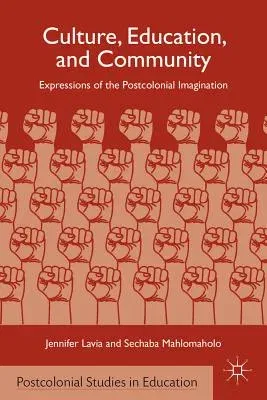J Lavia
(Author)Culture, Education, and Community: Expressions of the Postcolonial Imagination (2012)Hardcover - 2012, 24 April 2012

Qty
1
Turbo
Ships in 2 - 3 days
In Stock
Free Delivery
Cash on Delivery
15 Days
Free Returns
Secure Checkout

Part of Series
Postcolonial Studies in Education
Print Length
269 pages
Language
English
Publisher
Palgrave MacMillan
Date Published
24 Apr 2012
ISBN-10
0230338259
ISBN-13
9780230338258
Description
Product Details
Authors:
Book Edition:
2012
Book Format:
Hardcover
Country of Origin:
US
Date Published:
24 April 2012
Dimensions:
21.59 x
14.48 x
2.03 cm
Genre:
Multicultural
ISBN-10:
0230338259
ISBN-13:
9780230338258
Language:
English
Location:
New York
Pages:
269
Publisher:
Weight:
476.27 gm